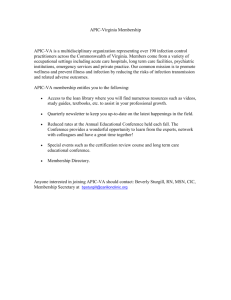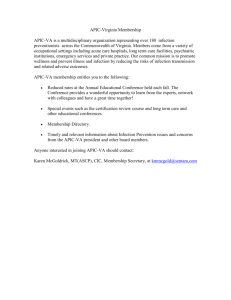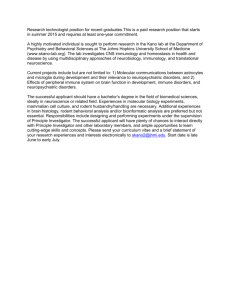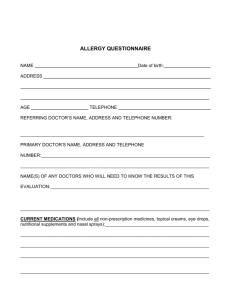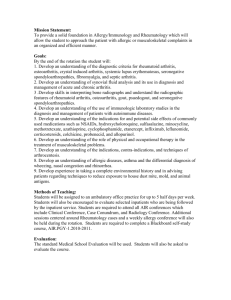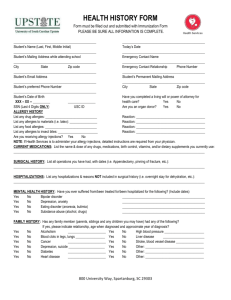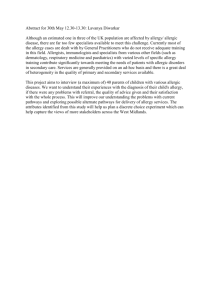Care of the Patient with Disorders of the Immunological System
advertisement
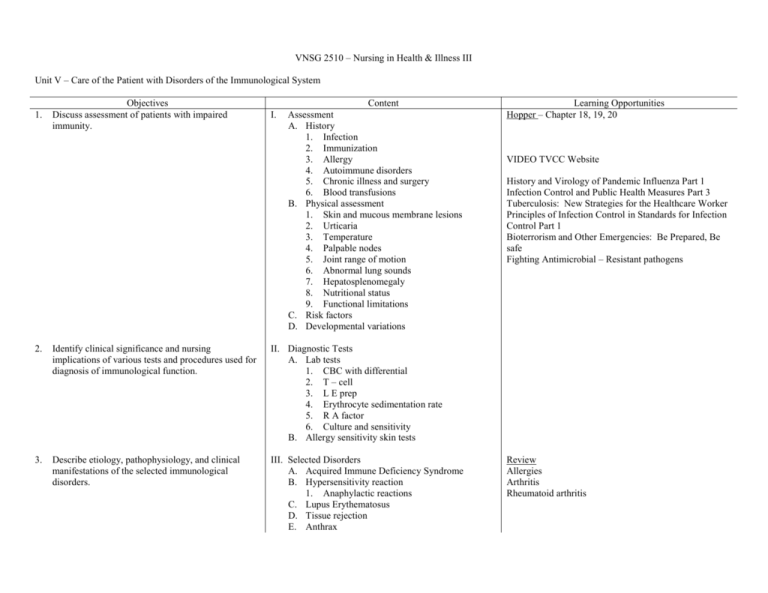
VNSG 2510 – Nursing in Health & Illness III Unit V – Care of the Patient with Disorders of the Immunological System 1. Objectives Discuss assessment of patients with impaired immunity. I. Content Assessment A. History 1. Infection 2. Immunization 3. Allergy 4. Autoimmune disorders 5. Chronic illness and surgery 6. Blood transfusions B. Physical assessment 1. Skin and mucous membrane lesions 2. Urticaria 3. Temperature 4. Palpable nodes 5. Joint range of motion 6. Abnormal lung sounds 7. Hepatosplenomegaly 8. Nutritional status 9. Functional limitations C. Risk factors D. Developmental variations 2. Identify clinical significance and nursing implications of various tests and procedures used for diagnosis of immunological function. II. Diagnostic Tests A. Lab tests 1. CBC with differential 2. T – cell 3. L E prep 4. Erythrocyte sedimentation rate 5. R A factor 6. Culture and sensitivity B. Allergy sensitivity skin tests 3. Describe etiology, pathophysiology, and clinical manifestations of the selected immunological disorders. III. Selected Disorders A. Acquired Immune Deficiency Syndrome B. Hypersensitivity reaction 1. Anaphylactic reactions C. Lupus Erythematosus D. Tissue rejection E. Anthrax Learning Opportunities Hopper – Chapter 18, 19, 20 VIDEO TVCC Website History and Virology of Pandemic Influenza Part 1 Infection Control and Public Health Measures Part 3 Tuberculosis: New Strategies for the Healthcare Worker Principles of Infection Control in Standards for Infection Control Part 1 Bioterrorism and Other Emergencies: Be Prepared, Be safe Fighting Antimicrobial – Resistant pathogens Review Allergies Arthritis Rheumatoid arthritis Objectives 4. Use the nursing process to describe care for patients with selected immune disorders, including treatments, medications, teaching plans and complications. V\Vocation Level III\VN 2510 Immune Content F. Small Pox IV. Implementation A. Dependent Interventions 1. Medications a. Antirejection drugs b. Anti-inflammatory 1.) Salicylates 2.) Non-steroidal anti-inflammatory Drugs c. Antiretroviral agents d. Allergy Emergency Meds 1.) Epinephrine 1:1000 2.) Benadryl B. Independent Interventions 1. Infection prevention measures 2. Patient education 3. Refer to community resources a. CDC National AIDS Hotline b. Hemophilia and AIDS/HIV Network c. Minority Task force on AIDS d. Mothers of AIDS Patients e. AIDS Hotlines f. The Asthma and Allergy Foundation of America g. Medic Alert Foundation h. American Lupus Society i. The Arthritis Foundation j. Lupus Foundation of America C. Interdependent Interventions 1. Home care Learning Opportunities Review 07/15
